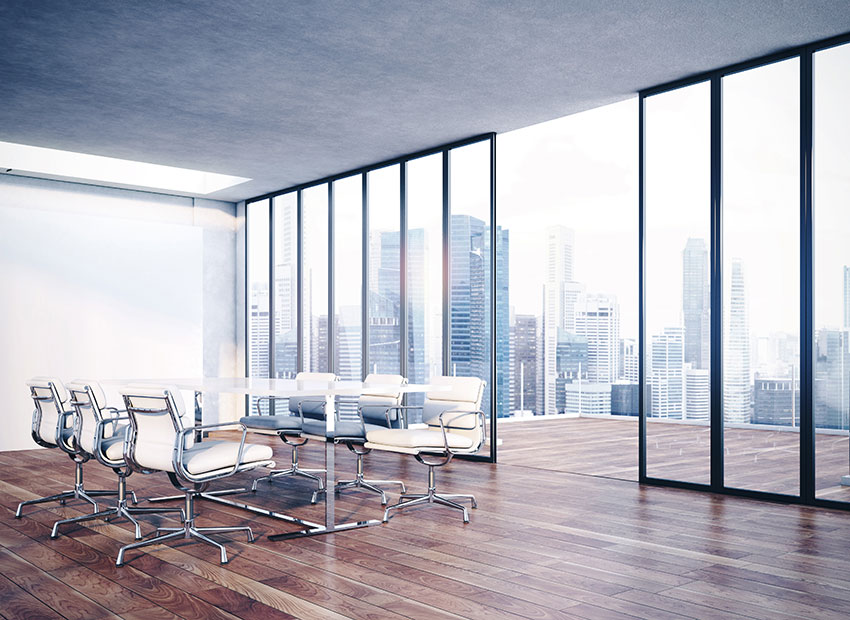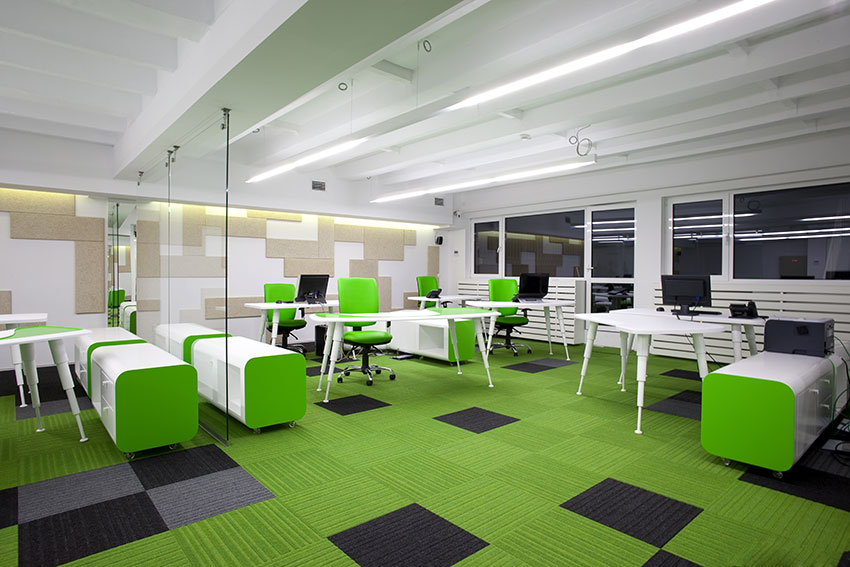DREAM OFFICE

Many businesses don’t utilise their office space to its full potential, and with a rise in real estate prices and increased mobile and home-working, employers are tying up capital with redundant, empty desks. This year is all about making your workplace work for you, and the growing demand for space sharing and a flexible working environment is set to continue throughout 2017. Do you enjoy your job? Is the big commute or the small salary taking its toll? With 1 in 4 UK employees looking to leave their jobs, according to the Chartered Institute of Personnel and Development, how can we make work more worthwhile?
With rising rents in the major cities, it’s more important than ever to get the most out of your office, making the traditional workplace where space is under-utilised, ripe for reinvention. Spaces offering a flexible, fresh way of working aren’t anything new, but with the banking industry now ditching the old-fashioned office protocol, it looks like this innovative style could take the working world by storm. Thin desks and virtual desktops, which can be accessed by any computers at any desk, help keep the office prosperous, popular and productive.
Cultural, social and economic changes will affect how we will work in 2017, balancing home and work life, and improvements in mobility and technology is enabling this flexibility to happen.
Imagine entering your office with no laptop, no phone, no desk and no doors. No-one can be certain if thin desks are just another corporate fad diet, but with one of the biggest firms in business taking a slice of the action, employees will no longer feel chained to their desks. Taking the lead in this new trend is UBS, the Swiss banking giant, looking to roll out a new design in their London office, lifting restrictions on employees and freeing up workspaces.
Trendy start-ups and tech firms have been employing this concept for years, but new technology is now making it possible for the more traditional, larger firms to have a revamp, and more change looks likely. In the past, the more time you spent at your desk correlated to how committed you were, but today, these obsolete assumptions no longer make sense.

Cultural, social and economic changes will affect how we will work in 2017, balancing home and work life, and improvements in mobility and technology is enabling this flexibility to happen. Working from home is rising in the UK, with 1.5 million employees snubbing the office, and UBS’s new office recognises that some employees will work from home, attend meetings or be on holiday, allowing 1 desk for every 1.2 employees. The ‘thin desk’ approach caters for a change in personnel numbers, and allows you to tune into work from anywhere in the office or home, sounding both fascinating for the employee and financially sound for the employer.
User mobility offers flexibility previously only enjoyed by smaller, more niche companies, and with every other aspect of our lives evolving, the archaic working pattern of a 9-5 stuck-at-one-desk model, needs updating too. The most natural workspace is probably a blend of home and office, and when emphasis is on output it doesn’t matter where the work is done, as long as it gets done, and the Citigroup offices in Manhattan are already enjoying the fruits that this increased freedom can bring. However, this modern office set up is not without its drawbacks.Employees may feel they are constantly under surveillance with a lack of privacy, and the noise levels might cause irritation. Researchers disagree on whether this new style will encourage laziness and cause distraction or foster communication and flexibility, but my bet is on the latter.

American Express, GSK and PWC already embrace this new form of office, saving millions of pounds in unassigned seating arrangements, offering employees the autonomy to move around during the day and eat lunch together, instead of alone at their desks.
The concept of a personal desk is dying. Employees can set up where they want to on a Monday, but it won’t necessarily be the same place the next day, making it easier for people to work remotely. It is still a work in progress, but global banking conglomerates are seeing the financial benefits.
User mobility offers flexibility previously only enjoyed by smaller, more niche companies, and with every other aspect of our lives evolving, the archaic working pattern of a 9-5 stuck-at-one-desk model, needs updating too.
This ‘loosening up’ of working etiquette makes sense and UBS expects to have 72,000 thin desks worldwide by the end of 2017. Companies fostering this change should encourage employees to still make the space their own, even if it is on a day-to-day basis. Employing the mobile office – if the banking giants can do it, so can you.
Citigroup’s Office-less Office
Citigroup, the third largest bank in the US, has already renovated its office to save costs, enhance flexibility and improve employee momentum, a landscape more akin to innovative start-ups than that of the financial sector. An open plan office space without doors and divisions, where no employee has a set desk, hopes to improve communication and collaboration, and increase interaction between workers. The design, from white noise generators to ceilings that absorb sound, will help minimise distractions, and with 150 spaces for 200 workers, it creates an adaptable environment that both accommodates and promotes change.

